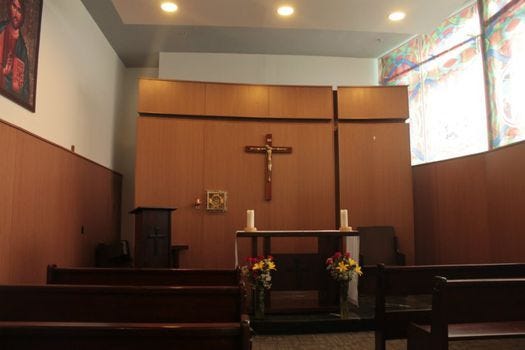Colombia’s largest airport is closing its Catholic chapel. Is that a sign of things to come?
An airport chapel in Bogotá has become a symbol of the Catholic Church's uncertain future in Colombia.

El Dorado International Airport in Bogotá, Colombia’s capital, is one of the largest air travel hubs in Latin America. And in a country where almost 80% of the population identifies as Catholic, it might seem only natural that the airport has a Catholic chapel.
But a political fight over Bogotá’s airport chapel points to emerging questions about the futu…
